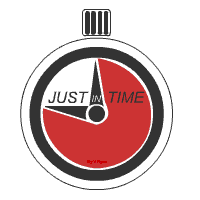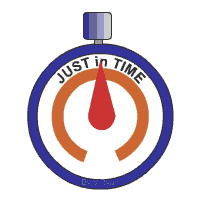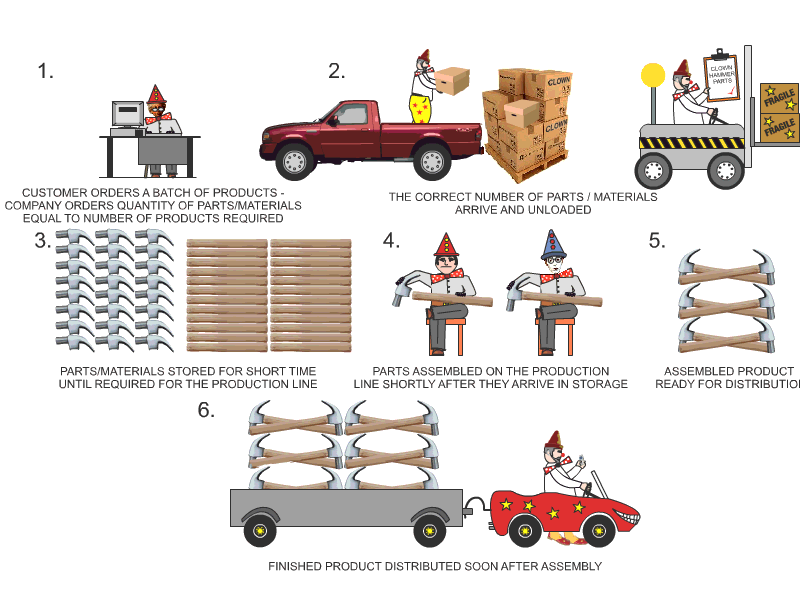| CLICK HERE FOR INDEX PAGE | ||
| JUST IN TIME (JIT) | ||
| V. Ryan © 2013 | ||
| PDF FILE - CLICK HERE FOR PRINTABLE WORKSHEET | ||
 |
‘Just in Time’ is a system based on efficient organisation, from receiving a customer order, the manufacture of the product on the production line and finally distribution. This system is often called ‘lean manufacture’. Just in Time relies on a good, efficient working relationship between the supplier / suppliers, the manufacturer and the distributer. If one of the links is inefficient, the entire system slows or fails, leading ultimately to customer dissatisfaction. |  |
| JIT - BASIC STAGES | ||
| When an order for a batch of products arrives at the manufacturing company, it is dealt with quickly and processed by administrative staff. | ||
|
|
||
| Materials / components are ordered from a supplier or suppliers. Contractual agreements between the supplier and manufacturer, ensure that they arrive at the manufacturing plant within twenty four hours (or sooner). | ||
|
|
||
| As soon as the materials / components arrive, they are processed on the production line, so that the batch is manufactured without delay. | ||
|
|
||
| When the batch of products is ready, distribution to the customer takes place. Distribution is often subcontracted to a haulage company. | ||
| ADVANTAGES OF JUST IN TIME (JIT) | ||
|
Only the amount of components / materials for the customer order are
purchased from the supplier/ suppliers. Consequently, money is not wasted
on extra materials / components that then need storing. The money saved
can be invested in staff training, updating equipment and machinery,
advertising and even research into new products. Just in Time means that the customer is supplied with an order quickly. This builds a reputation for reliability, helping some companies to establish a brand. Just in Time demands efficiency at every stage and this becomes the business culture of suppliers, manufacturers and distributors. The production line must be efficient and flexible, so that orders of varying quantities can be manufactured on time and within cost limitations. CIM (Computer Integrated Manufacturing) is central to JIT, as this is often the only way to ensure efficiency at all stages. Also, modular manufacturing (sometimes called flexible manufacturing) is important to JIT, as this allows rapid changes to be made to the production line. Staff must be well trained and often multi-skilled, so that they can be switched to and from different manufacturing processes, according to the orders on the production line. Manufacturing / production downtime is kept to a minimum. |
||
| JUST IN TIME - A BASIC UNDERSTANDING | ||
 |
||
| CLICK HERE FOR PRODUCT DESIGN INDEX PAGE | ||